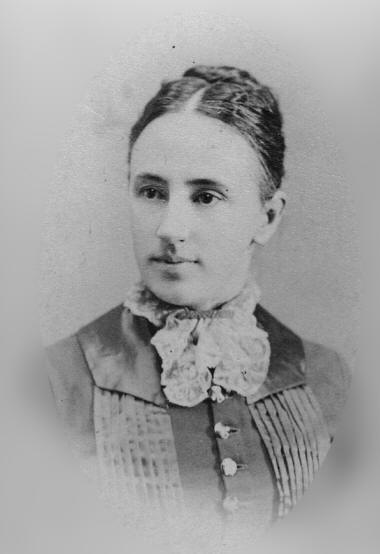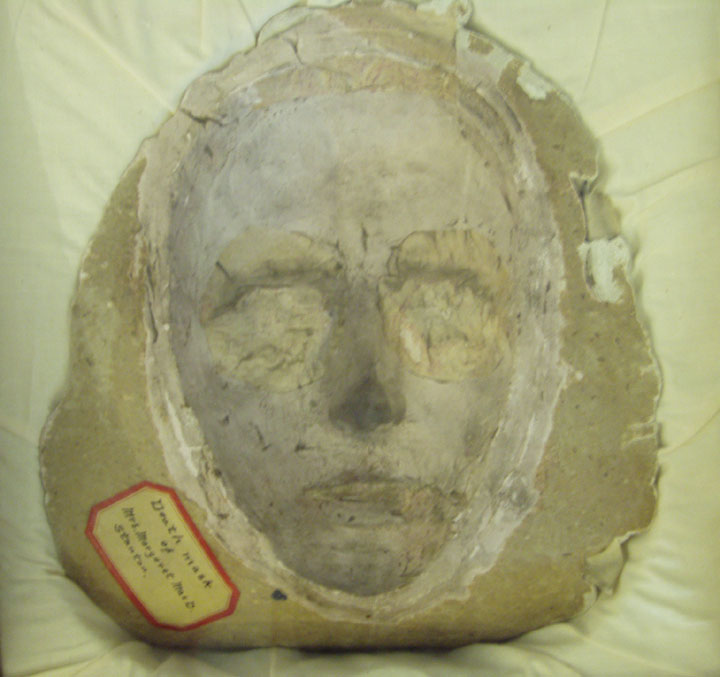
Margaret MacDonald Stanton
|
Death Mask
Death mask of Margaret MacDonald Stanton, 1895.
Death masks are made by oiling the face of the deceased and applying plaster or wax to make a mold. The mold can then be used to make any number of casts of the face. Death masks date back to the ancient Egyptians, where they were placed over the faces of mummies to identify the dead to their wandering souls. The well-known mask of King Tutankhamun is an elaborate example of this practice.
A death mask often served as an aid to sculptors, particularly those who created tomb effigies. During the Middle Ages in Europe, the masks were used to create effigies of royalty upon their deaths. These effigies were then laid in state for their funerals.
In the 18th and 19th Centuries, death masks served as a memento of the deceased. Masks were commonly made of prominent individuals during this time, and it is possible even today to locate the death masks of Dante, Napoleon, Beethoven, and Liszt available for mail order sale. |
Margaret McDonald ║ Edgar and Margaret Stanton ║ Iowa State Mourns
Death Mask of Margaret MacDonald Stanton
Sponsored by the University Archives, Iowa State University Library
Copyright 2006
Comments: archives@iastate.edu
